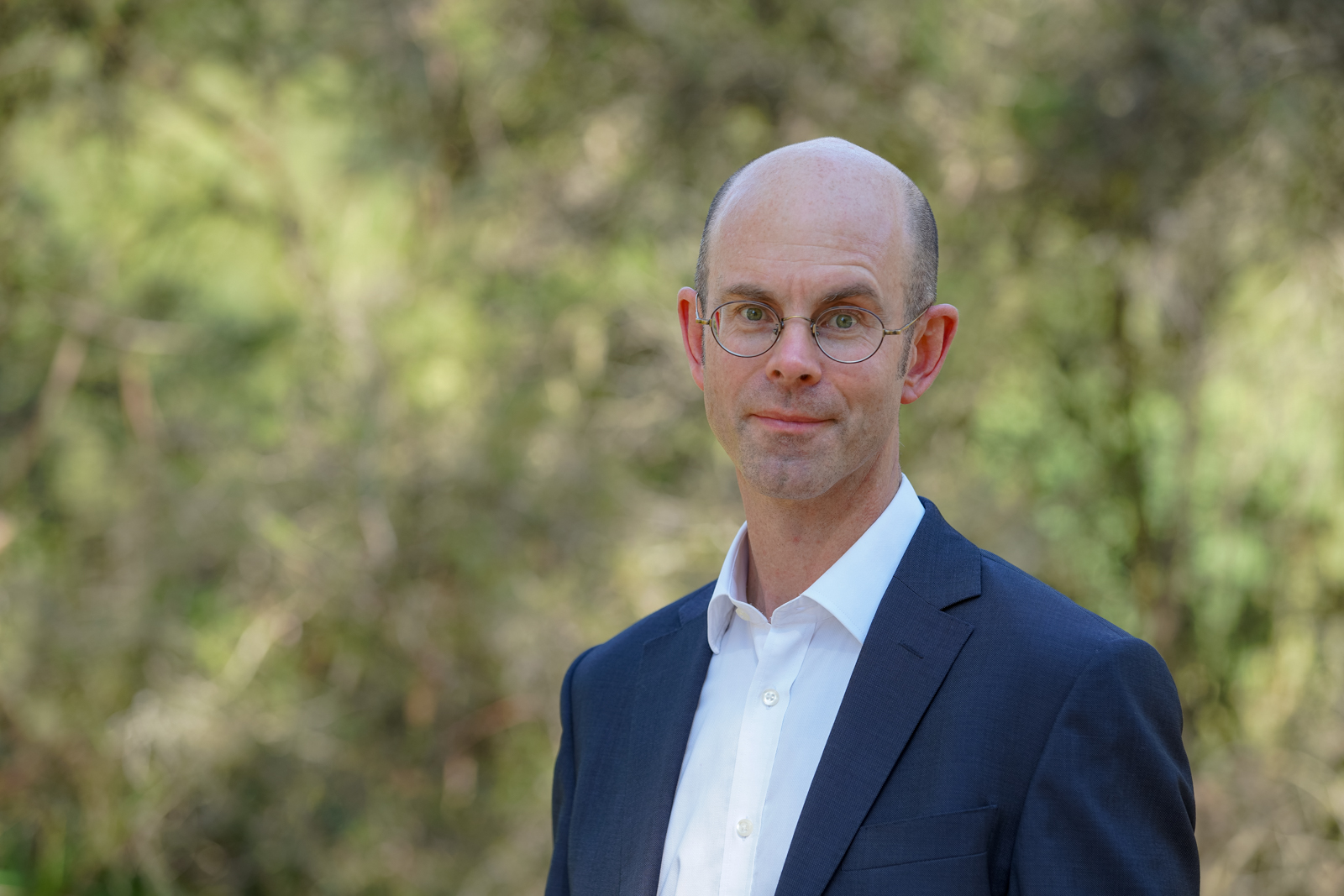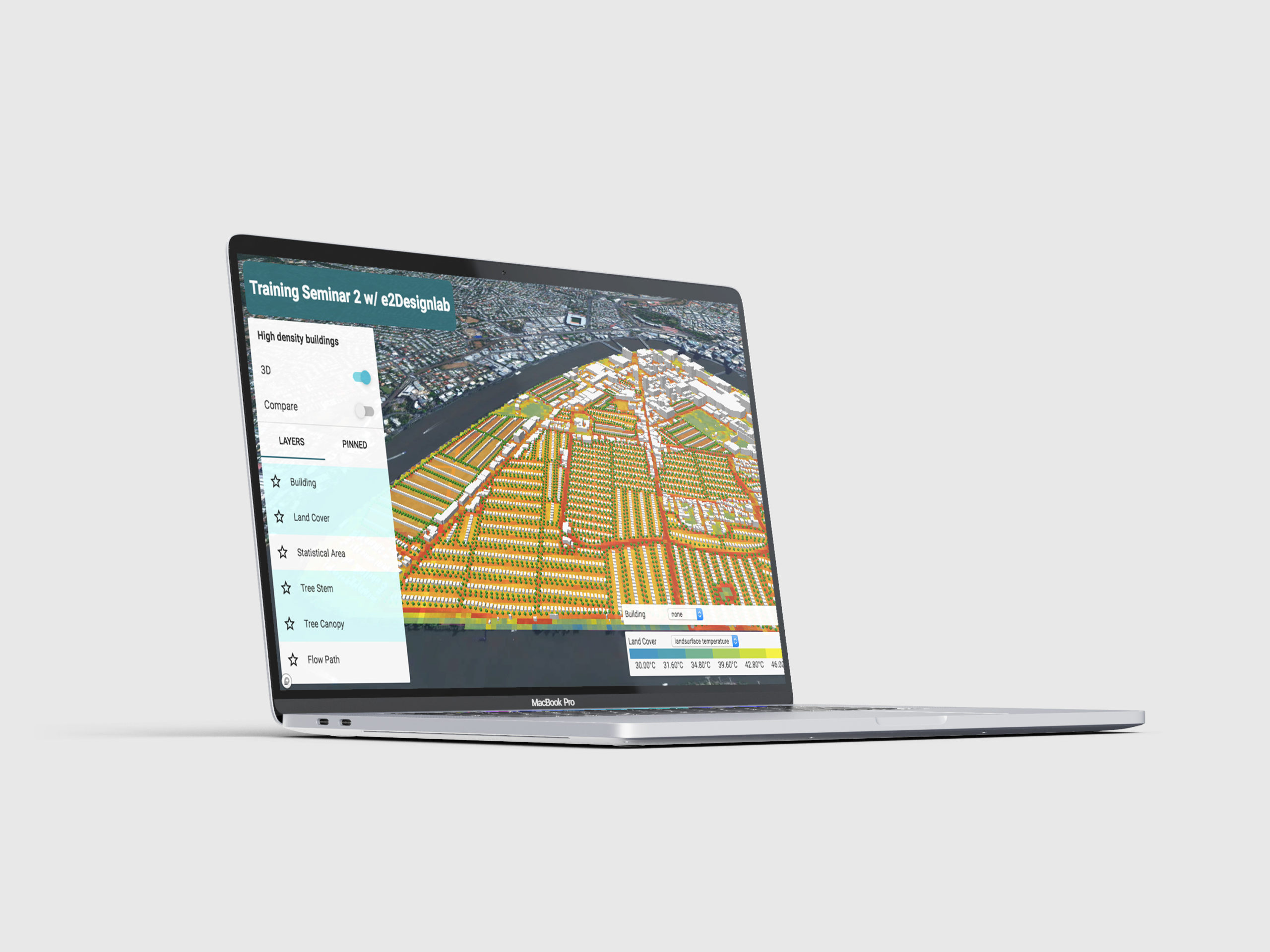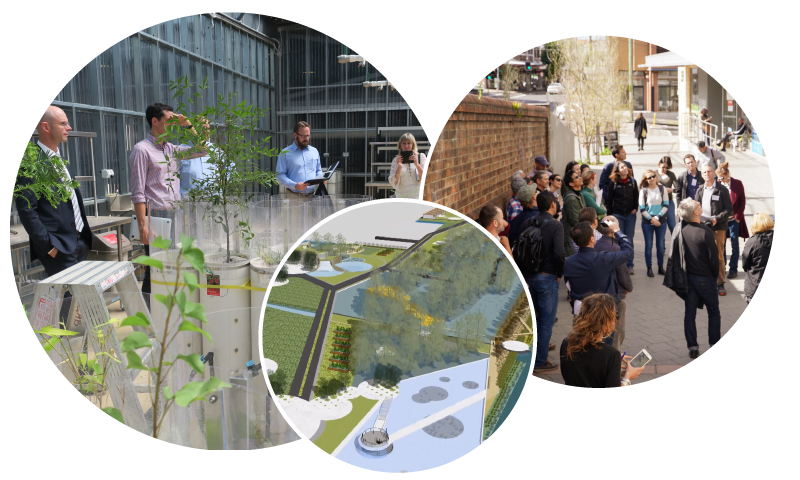Update from our CEO
Our final year of the CRC for Water Sensitive Cities is shaping up to be one of our biggest and best, despite the protracted lockdown we’re facing. Here are some of what we have planned for the coming 12 months.
Maintaining our focus on collaboration during COVID lockdown
Our collective health and wellbeing is paramount. The public health response to COVID-19 is critical to our immediate health but also flags the future modes of collaboration we’re likely to see in cities. During 2020 we’ve been able to shift our collaboration approaches to virtual environments, and have discovered that this opens up new opportunities to connect with our stakeholders and CRCWSC partners. In our final year we’ll be building on these approaches to ensure we continue to provide you with access to our activities. We are also exploring opportunities to pivot the water sensitive cities principles to frame them as a strategic response to future pandemics.

Supporting our Regional Advisory Panels
The Regional Advisory Panels (RAPS) in Brisbane, Adelaide, Sydney, Melbourne and Perth are key to our engagement with end users. These RAPs will continue through this final year and we will be working with each to ensure the partnerships, collaboration and collective learning that has been fostered through these RAPs does not stop when the CRCWSC finishes.
2021 Conference
We’re planning a March 2021 national CRCWSC Conference to recognise what we have achieved together over the past nine years, and to set a course for mainstreaming the water sensitive city mission beyond 2021.
We will make the event as accessible to as many people as possible given the potential for continued travel and budget restrictions. Keep an eye on waterSENSE for more information.
Completing and showing the value of T2 research
In addition to some remaining outputs across some of our Integrated Research Programs and the Tools and Products program, we’re also working on several integrated case studies that showcase how the full suite of CRCWSC tools come together in an end-to-end process, and demonstrate the potential gains from scaling up WSC practices. We expect to release these around December.

Future access, maintenance and further development pathways for CRCWSC IP
We are transitioning the current CRCWSC web site into a Knowledge Platform that allows users to locate and access the nine years of research after the CRC ends. We are currently preparing an outline of this Knowledge Platform for industry feedback over the coming months. We’re also making plans to ensure our tools and products:
- are maintained
- are supported by a community of practice
- are backed by online and onsite training
- have mechanisms for further IP development.
Next steps for the Water Sensitive Cities Institute
Even though COVID-19 restrictions will be with us for some time, maintaining momentum to lock in and scale up the achievements of the past nine years is a key focus. Our thinking revolves around the Water Sensitive Cities Institute (WSCI) and we’re pleased to share:
- The WSCI’s focus (particularly over the next few years) will be on mainstreaming water sensitive principles and practices. Over time, and as opportunities arise, the Institute will partner with large-scale research initiatives to create the next generation of research. In doing so, the aim will be to connect industry need with research capacity and put in place the industry regulations, capacity and networks needed for timely research adoption and application at scale.
- We will seek to collaborate (rather than compete) with our commercial partners to grow the market for water sensitive city services.
- We welcome interest in ownership expressed by a number of our partner universities and we’re discussing terms to progress this opportunity.
Future research opportunities
The WSCI is actively contributing to the current Water Security CRC bid development, with an emphasis on the research adoption and mainstreaming elements. The WSCI has also been approached to be an impact partner for a bid for a $15 million seven-year National Environmental Science Program (NESP) Hub on Sustainable Communities and Waste.
For CRCWSC partners seeing significant value in driving these research opportunities, we encourage you to invest directly. Participation in both initiatives is also available through the WSCI. Similarly, if current COVID-19 impacts or other factors mean neither bid is successful, the WSCI will maintain momentum on WSC mainstreaming and provide a coordination point until we secure funding for next generation research.

WSCI partner engagement
While the focus over the past few months has been on supporting the Water Security CRC bid, efforts to engage partner support for the WSCI will ramp up over the coming months. Next steps are:
- We will circulate a draft prospectus to CRCWSC Essential Participants this month.
- We will start wider engagement with other participants in August.
- We aim to sign up a critical mass of partners by December.
- We also aim to finalise ownership arrangements by December.
CRCWSC structure
We are beginning to pivot our CRCWSC structure to reflect this final year focus. You’ll see an article in this edition of waterSENSE about the creation of the new Chief Innovation Officer role, to help the Water Sensitive Cities Institute’s global experience find practical application in Australia and to support taking Australian innovation to the world.
Thank you for your continued support. We are excited by all the opportunities that will allow industry, government and researchers to keep collaborating and supporting cities through their WSC transition.
Ben Furmage